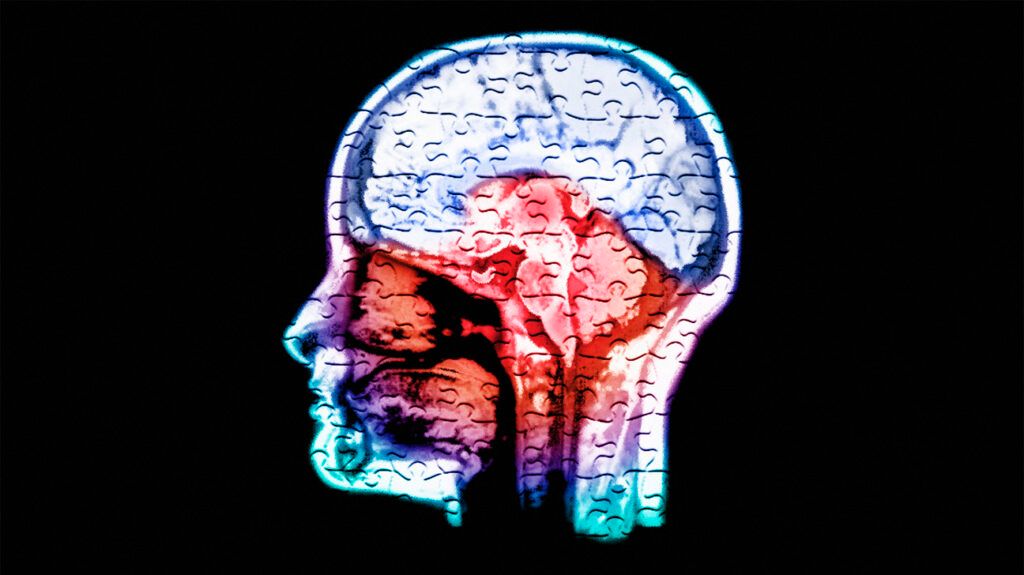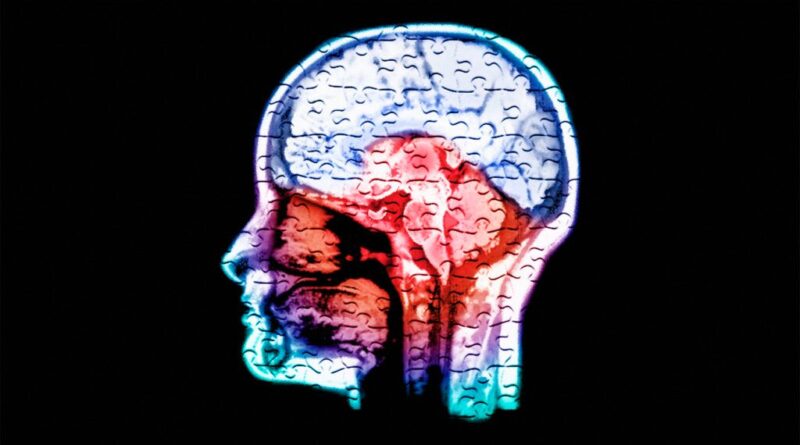Does calcium and magnesium deficiency affect brain health?

- Cognitive decline is a normal part of aging, but not everyone declines at the same rate.
- A new study investigates the relationship between mental function and magnesium and calcium levels in the blood.
- Researchers have concluded that low levels of these micronutrients are associated with poor cognitive function in people over 60 years of age.
A new study, published in the journal Energyinvestigates factors related to cognitive function in adults.
Consistent with previous research, it finds that age, body mass index (BMI), and chronic heart failure are all associated with changes in cognitive ability.
They also showed that low levels of blood calcium and magnesium were associated with poor performance on cognitive tests.
As we grow older, our body systems and organs gradually change, including the brain. Cognitive decline – a gradual deterioration in the ability to think – is common. However, it is inevitable and some people maintain good cognitive function well into their later years.
It is important to distinguish between cognitive decline, which is considered a normal part of aging, and dementia, which is not. Although dementia usually starts with cognitive decline, not all people with mild disabilities will develop dementia.
However, cognitive decline can make everyday life more difficult. So, as the average age in the West continues to increase, it is important to understand the factors that contribute to cognitive decline.
Recently, magnesium and calcium deficiencies have attracted the attention of researchers.
Studies suggest that people are
However, the data on calcium absorption are somewhat more mixed. Some research suggests that
A recent study revisits these links using a slightly different approach.
Previous research on this topic has relied on assessing micronutrient intake using, for example, food frequency questionnaires.
This method, while useful, is open to bias – people can forget what they ate, for example. Additionally, these questions provide a snapshot of a person’s diet per day or week, and diet can change dramatically over months and years.
The new study takes a more direct approach. It is the first of its kind to directly measure calcium and magnesium levels in the blood – a highly reliable way to assess nutrient status. This, the authors hope, may provide more definitive answers.
They recruited 1,220 participants in the hospital: 876 women and 344 men. All were 60 years of age or older and were in the hospital during the study. The scientists were able to obtain their medical history and blood samples.
They also measured their BMI and assessed cognitive function using two different tests.
Consistent with previous research, scientists found that advanced age and the occurrence of heart failure were associated with poor cognitive performance in the group. Also, a higher BMI was associated with better performance.
They also found that those with lower levels of magnesium or calcium in their blood performed worse on two different cognitive tests. Participants scored lower on the National Mental State Examination (MMSE) and the Drawing Test (CDT).
Interestingly, those with healthy magnesium levels but low calcium levels also performed poorly. However, people with low magnesium but healthy calcium levels had no such cognitive deficits.
Medical News Today spoke with Catherine Gervacio, registered dietitian, and WOWMD diet consultant about these results.
Gervacio, who was not involved in the investigation, explained that:
“Among the groups, only those with low calcium had significantly lower scores on cognitive tests. This suggests that calcium may have a stronger link to human mental health than magnesium. .It’s amazing because so many studies highlight the role of magnesium in brain health, so this finding highlights the importance of calcium.”
Also, the researchers found that people whose scores indicated dementia had lower levels of magnesium and calcium than people who scored higher on cognitive tests.
When the authors analyzed the ratio between calcium and magnesium, unlike others
If calcium and magnesium are linked to cognitive function, it seems logical that supplements could benefit older adults. We asked Gervacio this question.
He thought that “adults who have a low level of these sugars in their blood can benefit from supplements if they cannot see them in the food they eat.” However, he also explained that it is better to get these nutrients in food where possible, and it is important to consult a doctor before starting new equipment.
In agreement, Scott Kaiser, MD, who was also not involved in the latest news, told us that “taking supplements without proper medical care and monitoring can be dangerous to health.”
Kaiser, who is a board-certified physician and director of mental health for the Pacific Neuroscience Center at Providence Saint John’s Health Center in Santa Monica, CA, also explained how “they are careful to give personal recommendations. each balancing the risks and benefits for each supplement.”
In general, experts suggest that consuming vitamins and minerals from whole foods is better than taking supplements. Nikky Contractor, PhD, global R&D leader at Amway, who is not involved in this research, provided advice.
“The best food sources of calcium are milk, cheese and yogurt. Fortunately for vegans, vegetarians, and those who are lactose intolerant, soybeans, firm tofu, and spinach are also good sources of calcium,” he told us.
“Fortified plant milks – almond, soy, oat and rice – can also be considered,” added Gervacio.
Regarding magnesium, Konteraka explained that “pumpkin seeds and chia seeds are great sources of magnesium, as well as green leafy vegetables.”
Gervacio told us that “almonds are high in calcium and provide protein and healthy fats while chia seeds can be added to smoothies, yogurt or oatmeal.”
While this research is interesting and offers potential new ways to reduce the risk of cognitive decline, there are other equally important factors to consider.
A major study conducted over 25 years, and has just been published in a journal Genomic Psychiatryshows that intelligence in childhood is strongly related to cognitive functioning in old age. They also discovered complex genetic influences on cognitive function.
Although these are beyond our control, others can also make a big difference.
Kaiser, who was not involved in the study, pointed out that MNT the often forgotten importance of social relations. “The negative health effects of isolation and loneliness are becoming better understood and more widely appreciated,” she explained.
“A growing body of evidence shows that isolation and loneliness increase the risks of high blood pressure, heart disease and stroke, a weakened immune system, anxiety, depression emotional, cognitive decline, Alzheimer’s disease, and even death,” Kaiser added.
He also told us that lack of social interaction is associated with an increased risk of early death compared to smoking 15 cigarettes a day.
Other things he mentioned include: quitting smoking, managing stress and reducing the consumption of junk food.
And while avoiding stress completely is impossible, how we manage it can make a difference to our overall health, and the health of our brains as we age.
For example, “a strong and rapidly growing body of research is capturing the many benefits of meditation,” Kaiser said. MNT.
As for the diet, according to Kaiser:
“There are well-established links between the consumption of processed foods and an increased risk of heart disease, metabolic syndrome, obesity, cognitive decline, and many chronic and age-related conditions.”
He suggests visiting a “‘farm,’ where you can get the best medicine.”
In the current media environment, our attention is often drawn to the fascinating aging of metabolic responses and the balance between certain nutrients.
However, Kaiser pointed out that there are also other evidence-based risk factors for cognitive decline that people can focus on.
To emphasize his point, he recounted a recent interaction. He began by saying: “I was in the parking lot where the driver was listening to a podcast about longevity. “I saw him paying attention to micronutrients, metabolic data. and questions leading the science of longevity.”
“I also saw a pack of cigarettes and heard that he was struggling to quit smoking. We spent the last 15 minutes of our tour talking about tools and techniques to quit smoking; hopefully, now, along with intermittent fasting and various biohacks, he will find a way to cover this important longevity and finally quit the habit. ”
#calcium #magnesium #deficiency #affect #brain #health
